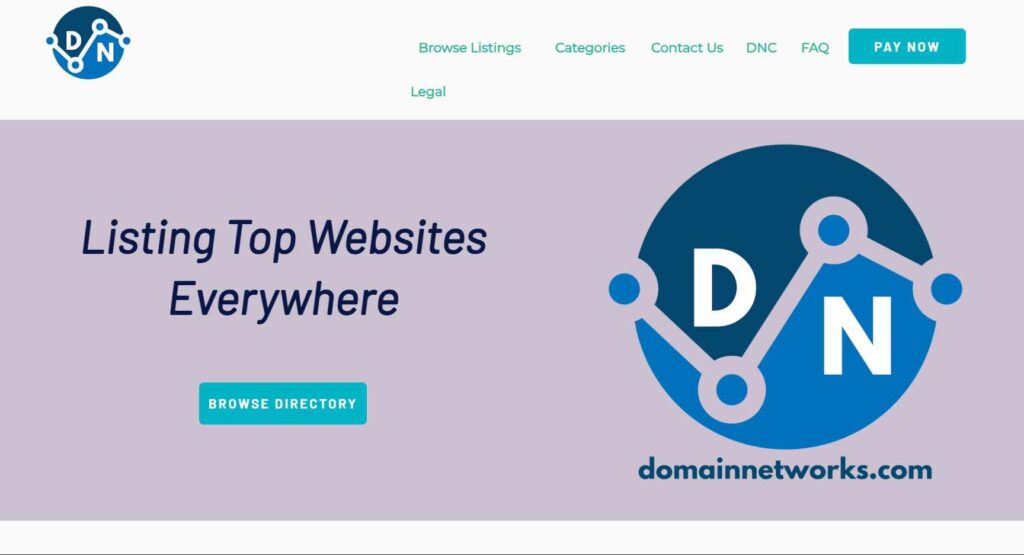Domain Networks Review: Is Domainnetworks.com Legit or Scam?

Understanding the online world can be tricky, especially when it comes to handling your presence on the internet. Businesses need a good website and a registered domain to do well, but there are some not-so-honest things happening too. One company that’s made people suspicious is Domain Networks.
This review is here to help you find out if Domainnetworks.com is for real or if it’s a sneaky scam.
Background And Purpose
Domain Networks presents itself as an online business directory, offering a platform for businesses to list their details and increase their online visibility. However, a closer look reveals a different reality.
1. The Invoice Scam
Numerous users have reported receiving snail mail invoices from Domain Networks, demanding payment for “Annual Website Domain Listings.” These invoices often arrive at addresses associated with specific domains, even when no direct connection exists between the recipient and the listed domain.
2. The Deceptive Twist
What’s concerning is that Domain Networks does not actually manage or maintain any client domains. Instead, they operate as an online directory, providing minimal information about businesses.
3. The Language Of Deception
The invoices sent by Domain Networks are carefully crafted to mimic legitimate renewal notices. Phrases like “THIS IS NOT A BILL” and “YOU ARE UNDER NO OBLIGATION TO PAY” are sprinkled in, but the overall tone remains misleading.
The intent is deceptive: to confuse recipients into paying for a service they neither need nor requested.
4. Transparency: A Glaring Absence
Adding to the concerns is the lack of transparency on Domain Networks’ website. No detailed information about the company’s services or legitimacy are met with disappointment.
Is Domainnetworks.com Legit Or Scam?
To further expose the Domain Networks, let’s highlight several red flags that should serve as warning signs:
- Unsolicited Invoices: Receiving an unexpected invoice for domain listings is the first and foremost red flag. Legitimate domain registrars do not send unsolicited invoices via snail mail.
- No Real Service Provided: Domain Networks claims to offer business listings, but their directory lacks substance, value, and reach. Businesses receive minimal exposure, and the effectiveness of their listings is questionable at best.
- Misleading Language: The carefully worded invoices are designed to create confusion. Users might mistakenly believe them to be legitimate renewal notices, leading to unnecessary payments.
- Lack of Customer Support: Numerous reports indicate that Domain Networks does not respond to phone calls or inquiries. Legitimate companies prioritize customer service and support, and Domain Networks’ lack of responsiveness is a major red flag.
- Targeting Vulnerable Populations: These deceptive tactics often target older generations, less tech-savvy individuals, and small business owners who may not be familiar with domain management practices. The invoices exploit this lack of familiarity to trick them into paying.
- Negative Reviews and Warnings: Multiple reviews on platforms like Trustpilot and Scamadviser paint a negative picture of Domain Networks. Users share their experiences of being targeted by this deceptive scheme, further solidifying the concerns about their legitimacy.
Based on the evidence, it’s clear that Domain Networks is not a legitimate company offering valuable services. Their deceptive practices, lack of transparency, and targeting of vulnerable populations raise serious concerns and strongly suggest that they are a scam.
If you receive an invoice from Domain Networks, do not pay them. It’s crucial to be wary of unsolicited invoices and to thoroughly research any company before engaging in any business transactions. Remember, if something seems too good to be true, it probably is.
Read: My Prepaid Center Review: Is myprepaidcenter.com Legit?
Domainnetworks.com Review
Summary
Domain Networks is not a legitimate company. Their deceptive practices, misleading invoices, and lack of transparency clearly mark them as a scam. Businesses and individuals should be aware of their tactics and avoid engaging with them. By understanding the red flags and seeking out alternative solutions, you can protect yourself from falling victim to their deceptive scheme.
